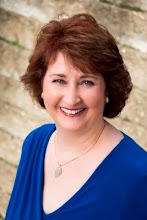https://www.bookswelove.com/donaldson-yarmey-joan/
December
The word December comes from the Latin word decem which means ‘ten’. In the Roman calendar, which began with the month of March, December was the tenth month. The cold, wintery days between the end of December and the beginning of March did not have a name. Eventually, those days were called January and February and were considered the beginning of the calendar year. Therefore, December became the twelfth month but kept its name.
The birthstone of December is turquoise
with blue topaz a close second. Turquoise color can range from sky-blue to blue
green to a vivid green. The flower of December is the narcissus. The Zodiac
sign Sagittarius ends on December 21 and Capricorn begins on December 22.
December is noted for the Nobel Prizes
being awarded in that month. Other events that took place in December are: the
first Sunday newspaper began publication in Britain on December 4, 1791; the
Bill of Rights was passed in the USA on December 14, 1791; the Wright brothers
made their first flight on the December 17th, 1903; and the first heart
transplant took place in December 03, 1967.
Celebrations in December include World Aids Day on the first, the International Day of the Disabled Person on the third, and International Hug day on the fourth. Human rights day is on the tenth but there is also the month long observance of Universal Human Rights. Poinsettia Day is on the twelfth.
|
Christmas
Day is celebrated by Christians around the world on December 25 to mark the
birth of Jesus Christ. Some non-Christian celebrations in December include:
Hanukkah from December 7-14 on the Jewish calendar; Bodhi Day (Buddhism) on
the 8th; and Datta Jayanti (Hinduism) and Yomari punhi (Nepal Era)
on the 25th. Some facts and beliefs about December: |
December 21 is the beginning of winter in the Northern Hemisphere and has the shortest number of daylight hours of the year. It is the first day of summer in the Southern Hemisphere and has the longest daylight hours there.
The ancient Mayans were very advanced in their culture and in their understanding of the universe. Because the Mayan calendar ended on the 21st of December 2012, many people world-wide thought it predicted the world as we knew it would end on that day.
If snow falls on Christmas day, Easter will be warm and sunny.
Some believe that December 28 is the unluckiest day of the year, while spiders and their webs are considered lucky on Christmas.
More dentists have birthdays in December than in any other month according to a survey done in 2011. The results of another survey showed that couples argue the most during the last month of the year.
More money is drawn from ATMs during December than in any other month.
St. Nicholas, was originally the patron saint of children, thieves, and pawnbrokers. He is now known as Santa Claus.
A Norse tradition of cutting and burning a tree on December 21 to bring in the Winter Solstice was supposed to last for twelve days. This is now known as the 12 days of Christmas.
Germany had the first artificial Christmas
trees. Some were wooden and shaped like a pyramid while others, developed in
the 1880s, were made of goose feathers that were dyed green. Candy canes are
supposed to represent the Shepherds cane, the star at the top of the tree is
for the first Christmas night and candles, which were used before there was
power for lights, represented the light of the world.

















